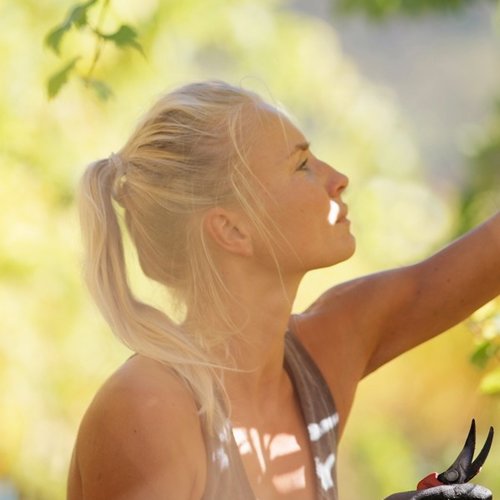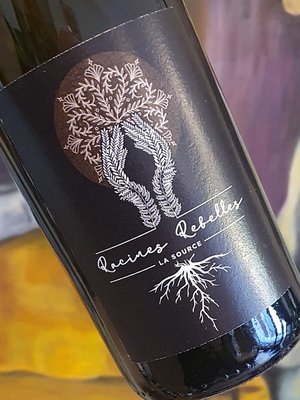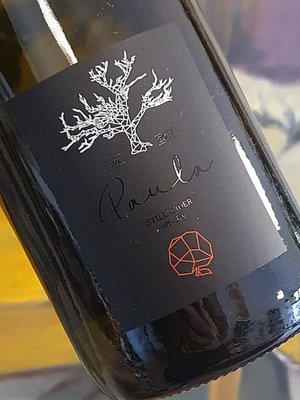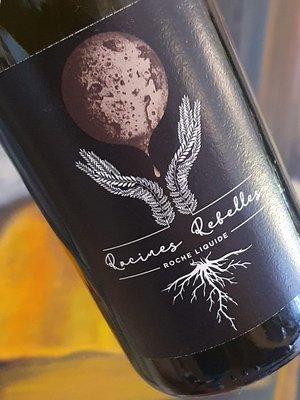RACINES REBELLES
Racines Rebelles is based in Grevenmacher, on the calcareous soils of the Moselle Luxembourgeoise, this micro-winery is run by ‘wild child’ Kaja Kohv, an Estonian former sommelier who made her winemaking dream come true. She farms only 0.8ha, planted with Elbling, Pinot Blanc, Riesling and Pinot Gris, biodynamically and as naturally as possible, and produces cider from some hundred-year-old apple orchards. Wild plant-infused teas are used to boost the natural defenses of the vines, and in the cellar minimal intervention is practiced, in order to let the Obermosel terroir shine through as best as possible. Even though her first vintage was only in 2019, her wines are already multi-layered, elegant, minerality-driven, deeply pure and brimming with passion.
The essence behind Racines Rebelles is mostly gathered by sommelier’s desire to become
a winegrower. It was back in 2013 when the wild winemaking adventure began in
Beechworth, Australia working under the guidance of an award-winning winemaker Rick
Kinzbrunner (Giaconda Vineyards). Afterwards being able to work full-time for 5 years with
Abi Duhr (Château Pauqué) who is one of the forerunners in the making of terroir wines in
Luxembourg. Mostly thanks to him I should quote Alice Feiring “Survival often hinges on
the back of accidents, luck, and the random kindness of strangers.” Then in 2020 the
opportunity to make my own choices arose while I was offered to rent 0,8 ha of vineyards
(25-40y) in two neighbouring villages (Grevenmacher & Dreiborn) on the steep slopes of
Moselle Luxembourgeoise. Racines Rebelles as a name marks the passion and dedication
on the way towards filling a dream without having any degree in viticulture nor a family in
wine business.
& new text by Kaja:
This tiny micro-winery produces not only wine but also very limited quantity of cider from
a century old apple orchards that have never seen any treatments against diseases. Local
grape varieties like Elbling, Riesling and Pinot Blanc are farmed by observation with
biodynamic preparations to create a living ecosystem. Having a fruit orchard with mixed
crop above the vineyards helps to improve biodiversity. Wild plants like stinging nettle,
common horsetail, dandelion and chamomile are mostly collected from my garden for
infusing teas along propolis and essential oils to boost the natural defenses of the vines.
Without having any organic or biodynamic certificate main goal remains on working as
precise as possible in the vineyards to be able to minimize the effort in the cellar.
Soft- pruning techniques are practiced especially to beat Esca in the old vines. Dominant
part of the vineyard work is done manually in order to avoid soil getting compressed.
Plowing was done only once after taking over the vineyards for aerating and seeding cover
crop. In general my preference goes to covered soils and no plowing. Grape selection during
the harvest is always done in the vineyards to separate botrytis affected grapes for being able
to have perfectly healthy crop for longer maceration. Spontaneous fermentations are mostly
done in larger old barrels and stainless steel vats for keeping the sense of terroir. Low
intervention philosophy in the cellar is letting the wines to show their pure mineral
backbone from limestone. By avoiding cultural yeast additions and by keeping the sulfites
at bay (20 mg/l added at the bottling), wines are light- bodied but multilayered with a sense
of female elegance.



 SHOP
SHOP
 ABOUT US
ABOUT US
 CONTACT
CONTACT
 NEWS / BLOG
NEWS / BLOG






